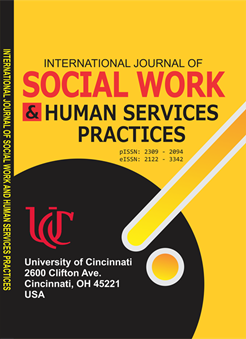INTERNATIONAL JOURNAL OF SOCIAL WORK AND HUMAN SERVICES PRACTICES (IJSWHSP)
THE CONSTRUCTION AND APPLICATION OF THE AWARENESS-EXECUTION-EXPERIENCE INTEGRATION THEORY
E-ISSN: 2122-3342
P-ISSN: 2309-2094
DOI: https://iigdpublishers.com/article/348
Unconscious habits play a significant role in shaping individual behavior and decision-making, often posing obstacles to achieving a healthy and efficient lifestyle. To address these challenges, this study introduces the Awareness-Execution-Experience Integration Theory (AEEIT), designed to facilitate behavior change through a systematic and structured approach. The theory emphasizes four key steps: awareness, choice, execution, and experience, each aimed at helping individuals maximize life efficiency and move towards a more fulfilling life. Drawing from existing psychological and behavioral science research, the AEEIT incorporates the concept of flow experience to create a comprehensive framework for behavior modification. An experimental design is proposed to validate the theory, involving diverse participant groups and employing data analysis to evaluate the outcomes. Although empirical validation is pending, preliminary theoretical analysis suggests that the AEEIT has significant potential to enhance individual behavior awareness, self-regulation, and engagement in flow experiences. The theory offers a novel approach to behavior change, with important implications for personal growth and self-regulation, and opens up new avenues for research in social psychology. Practical recommendations are also provided to help readers apply the theory in their daily lives, with the goal of achieving a healthier and more efficient lifestyle.
Yinan Zhang
Berkman, E. T. (2018). The neuroscience of goals and behavior change. Consulting Psychology Journal: Practice and Research, 70(1), 28.
Csikszentmihalyi, M., Nakamura, J., & Csikszentmihalyi, M. (2014). The concept of flow.
Flow and the foundations of positive psychology: The collected works of Mihaly Csikszentmihalyi, 239-263.
Fujita, K., & MacGregor, K. E. (2012). Basic goal distinctions. In Goal-directed behavior (pp.
85-114). Psychology Press.
Galla, B. M., & Duckworth, A. L. (2015). More than resisting temptation: Beneficial habits mediate the relationship between self-control and positive life outcomes. Journal of personality and social psychology, 109(3), 508.
Garland, E. L., Gaylord, S. A., & Fredrickson, B. L. (2011). Positive reappraisal mediates the stress-reductive effects of mindfulness: An upward spiral process. Mindfulness, 2, 59-67.
